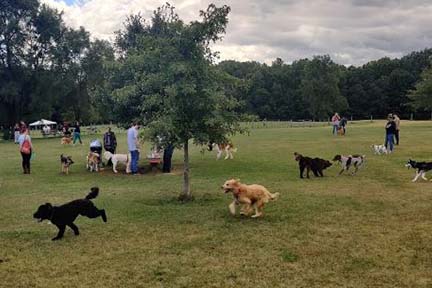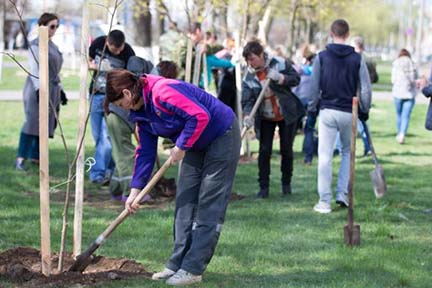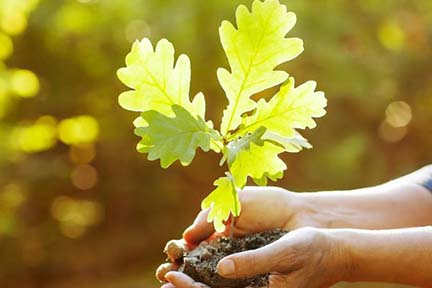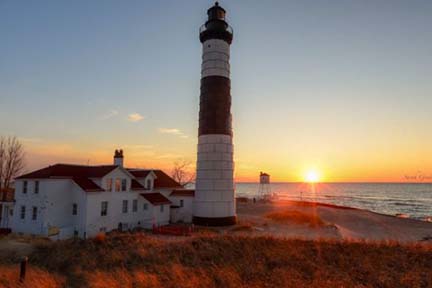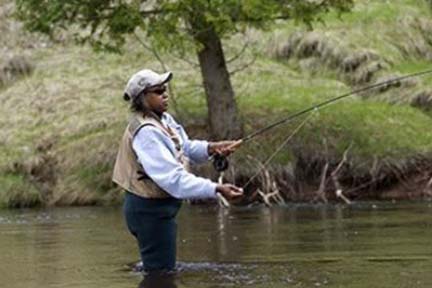August packed with summer surprises, outdoor fun
Outdoor exploring, fun festivals, Michigan history and more – when it comes to enjoying our state’s natural and cultural resources, August is full of possibilities! Here is just a sampling of what’s on tap next month:
To see the full roster of programs, classes and other opportunities, and to discover what’s happening close to home or across the state, check out the DNR’s events calendar at Michigan.gov/DNRCalendar.
 Taking place twice a year, Free ORV Weekend – coming up Aug. 19-20 – is a great time to see, experience and test out Michigan’s off-road vehicle trails. Taking place twice a year, Free ORV Weekend – coming up Aug. 19-20 – is a great time to see, experience and test out Michigan’s off-road vehicle trails.
Residents and out-of-state visitors legally can ride Michigan’s 4,000 miles of off-road vehicle trails and routes, as well as the state’s six scramble areas, on two back-to-back days without an ORV license or trail permit. The entrance fee at Holly Oaks ORV Park in Oakland County also will be waived this year. All other ORV rules and laws still apply. |
Families, friends and other small groups can learn about local wildlife, Michigan ecosystems and outdoor skills during summer-camp-style programming at all-inclusive Lodge & Learn weekends Aug. 4-6, Aug. 11-13 and Aug. 18-20 at the Ralph A. MacMullan Conference Center in Roscommon.
Select your favorite Lodge & Learn programs – like birdwatching, kayaking, a family scavenger hunt and many others – when you register. Cost is $275 per person and includes lodging, meals, educational programming, kayak rentals and more.
 The DNR Outdoor Skills Academy offers several opportunities to get started with, or get better at, outdoor pursuits in August. Fly Fishing 101, Aug. 5 at the Wolf Lake State Fish Hatchery Visitor Center in Mattawan, will cover terminology, etiquette, fly tying, knots, casting and much more. The DNR Outdoor Skills Academy offers several opportunities to get started with, or get better at, outdoor pursuits in August. Fly Fishing 101, Aug. 5 at the Wolf Lake State Fish Hatchery Visitor Center in Mattawan, will cover terminology, etiquette, fly tying, knots, casting and much more.
The Carl T. Johnson Hunting and Fishing Center in Cadillac will host bear hunting clinics – covering habitat, gear, stand placement, baiting, rules and regulations, and carcass and hide care – Aug. 6 and Aug. 12. And learn the skills needed to successfully transition from bait hunting to trail hunting whitetail deer and to better manage your property for wildlife habitat with Hunting Whitetails Naturally, Aug. 19 at the Hunting and Fishing Center.
Find more info about all available classes at Michigan.gov/OutdoorSkills. |
There’s still plenty of summer left – discover new ways to enjoy it with fun programs for all ages at the Outdoor Adventure Center in Detroit. The OAC’s August calendar includes archery, education programs for kids, yoga, family hikes and much more. Seniors can learn about Michigan lighthouses during the Aug. 10 Brunch and Learn program, adults can learn to make a pollinator hotel Aug. 18, and everyone can Get Hooked on Fishing Aug. 19 or learn more about one of our favorite flying mammals at the Aug. 24 bat hike at Maybury State Park in Northville.
That’s just a glimpse of what you can do next month at the OAC. Find more info about these and other programs on the Outdoor Adventure Center events calendar.
 Step back in time and learn more about our state’s past at Michigan History Center sites. Drop by the Michigan Iron Industry Museum in Negaunee on select Tuesday afternoons and discover the Upper Peninsula’s intriguing history, courtesy of a variety of experts. Step back in time and learn more about our state’s past at Michigan History Center sites. Drop by the Michigan Iron Industry Museum in Negaunee on select Tuesday afternoons and discover the Upper Peninsula’s intriguing history, courtesy of a variety of experts.
The Aug. 1 program features a screening of the documentary “Saving Our Theatre,” about the importance of local theater in several U.P. communities, followed by a question-and-answer session with the filmmaker. Aug. 8, it’s a screening of the documentary “Linked to Legends: The U.P. Teams that Played the Packers” followed by a question-and-answer session with the filmmaker. Women of the Watch: Keepers of the Light on Aug. 15 looks at the role of women as lighthouse keepers in Michigan. The Tuesday afternoon programs are also available on the Michigan Iron Industry Museum Facebook page.
Cambridge Junction Historic State Park in Lenawee County hosts Sauk Trail Memories, with demonstrations of traditional “lost” arts, Aug. 13. And cheer on the home team in the annual Walker Wheels Vintage Base Ball Invitational Aug. 26, with historic base ball clubs playing by 1860s rules – no gloves, no swearing!
Learn more about Michigan History Center programs at Michigan.gov/MHC/Events. |
On Pheasant Fridays, join representatives from Pheasants Forever and learn about firearm safety and the organization’s effort to restore habitat for these beautiful birds. You’ll have the opportunity to shoot a BB gun with expert instruction in a safe environment. There will also be hands-on activities to learn about grasslands and pollinators. Pheasant Friday will take place Aug. 4 at Hayes State Park in Onsted, Aug. 11 at Seven Lakes State Park in Holly, Aug. 18 at Ionia State Recreation Area and Aug. 25 at Metamora-Hadley Recreation Area.
The National Wild Turkey Federation brings its interactive, inflatable shooting range to several state parks for BB gun shoots in August. Families and kids can shoot BB guns alongside trained range-safety professionals and learn about firearm safety practices, conservation efforts and the biology of the wild turkey. For ages 7 and older; children must have a parent/guardian present.
BB shoots are scheduled for Aug. 7 at Hoffmaster State Park in Muskegon, Aug. 9 at Ludington State Park, Aug. 10 at Silver Lake State Park in Mears and Aug. 11 at Mears State Park in Pentwater.
 Festivals and special events abound at Michigan state parks next month! Celebrate Michigan forests with live music, hear Civilian Conservation Corps storytelling and get up close with DNR firefighting equipment, during a Tree Party at Higgins Lake Nursery and CCC Museum in Roscommon Aug. 5. Festivals and special events abound at Michigan state parks next month! Celebrate Michigan forests with live music, hear Civilian Conservation Corps storytelling and get up close with DNR firefighting equipment, during a Tree Party at Higgins Lake Nursery and CCC Museum in Roscommon Aug. 5.
That same weekend (Aug. 5-6), over a hundred artists, food trucks, art activities and more will be on hand for the Belle Isle Park Art Fair in Detroit, and the Saginaw Bay Waterfowl Festival – featuring duck and goose calling competitions, a wildlife arts and crafts show, a hunting expo, canoe races and many other activities – takes place at Bay City State Park.
During Forest Fest at Hartwick Pines State Park in Grayling Aug. 12, visit various stations around the park to learn more about Michigan’s forests and get a goodie bag upon completion of the provided activity booklet. Also happening at Hartwick Pines is Black Iron Days, Aug. 16-17, when you can join blacksmiths and other artisans as they demonstrate how they make their crafts and observe the steam-powered sawmill in operation. And the Porcupine Mountains Music Festival, Aug. 25-26 at the Porkies Winter Sports Complex, returns for its 17th year with a diverse selection of musical styles: blues, country, bluegrass, rock, folk and more. |
|
